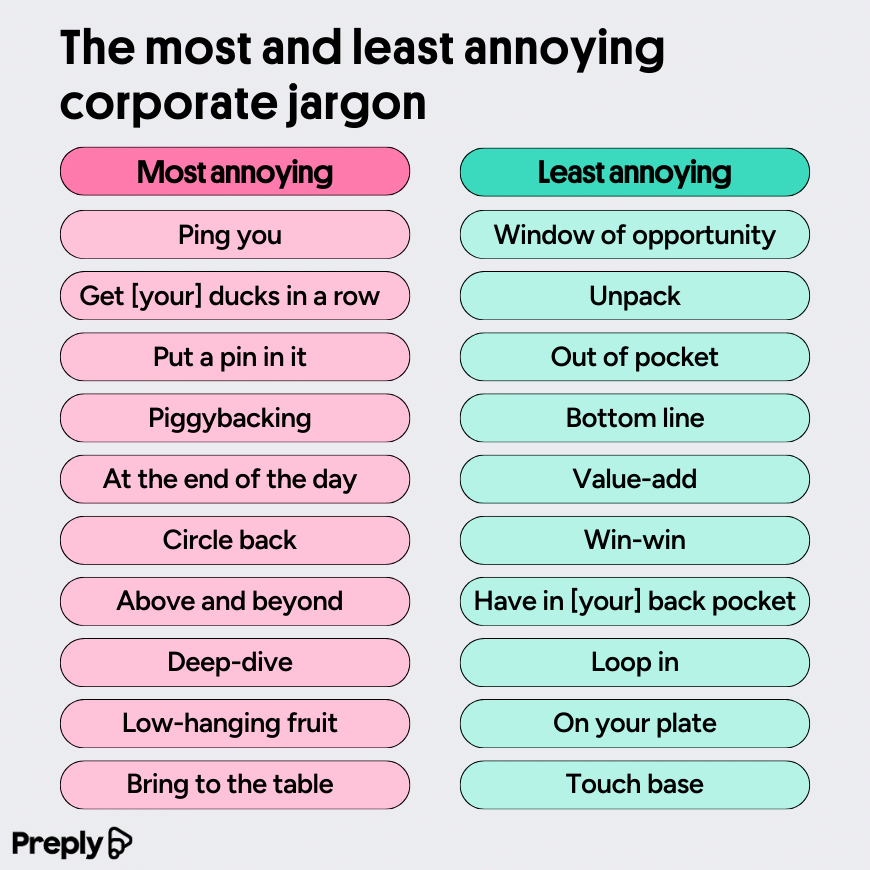In the bustling world of Canadian workplaces, a distinct language thrives—a language woven with buzzwords, catchphrases, and jargon that both connect and confound us.
From coast to coast, professionals engage in a linguistic dance of "synergy," "brainstorming," and "circling back." But what do Canadians really think about this unique lexicon of corporate speak?
According to a recent survey conducted by the online language learning platform Preply, over 1,000 Canadian residents voiced their opinions on the ever-present world of corporate jargon. The findings not only unveiled the frequency of its use but also shed light on which expressions irk Canadians the most.
Canadian Buzz: Unveiling the Stats
An overwhelming 88% of Canadians admit to utilizing corporate buzzwords in their day-to-day interactions. Imagine that! Whether it's the ubiquitous "touch base" or the dreaded "ping you," these phrases find their way into our conversations about meetings, deadlines, and project milestones.
In the grand mosaic of Canadian workplaces, the average citizen deploys these buzzwords six times daily, with some self-confessed enthusiasts wielding them over 15 times a day! Among the champions of corporate slang, employees in Cambridge, ON stand tall, claiming the second-highest usage rate in the country, clocking in at an average of 9.5 buzzword utterances per day.
Love It or Loathe It: Buzzwords in the Limelight
But not all corporate slang receives a warm embrace. The survey uncovered that 35% of Cambridge employees cringe at the mention of "get your ducks in a row," finding it the most irksome example of workplace jargon. Furthermore, nearly a third of respondents feel that these expressions diminish the authenticity of communication, opting to use them merely to blend in with the crowd.
While some buzzwords find themselves atop the popularity charts, others languish in the depths of annoyance. "Ping you" emerges as the most grating phrase across Canada, while "window of opportunity" basks in the glory of being the least bothersome. It seems that for every beloved "game-changer," there's an equally despised "low-hanging fruit."

Decoding the Jargon Jungle: Why Do We Do It?
So, why do we persist in peppering our conversations with these linguistic quirks? For many, it's a means of camaraderie—a way to belong in the tribe of corporate culture. A staggering 25% of respondents admit to using jargon simply to fit in, with male employees leading the charge at 28%.
But fitting in isn't the only motivation. For 31%, jargon serves as a time-saving shorthand, while 27% believe it enhances communication with colleagues. It's a delicate dance between efficiency and irritation, where the line blurs between savvy communication and eye-rolling annoyance.
Generational Divide and Departmental Demarcations
Across the generational spectrum, Gen Z emerges as the reigning champions of buzzword bombardment, averaging eight utterances per day, while Boomers tread lightly with five. Moreover, the usage of corporate jargon varies across departments and levels of seniority, with management leading the pack, followed closely by Sales and Operations.
Interestingly, Legal departments stand as bastions of linguistic purity, perhaps owing to their reliance on technical and specialized terminology




